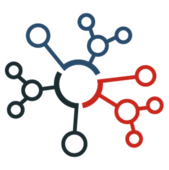SWINNG – Process Innovation in Software Industry
The software companies in the cluster region have a globally unique competitiveness and capacity for innovation for enterprise software. The aim of the project SWINNG – Process Innovation in the Software Industry is to maintain and expand this key position. To achieve this goal
- novel methods for the management of innovation processes in software development,
- innovative business models for the economic exploitation of software,
- modern practices for the organization of software investments aligned with corporate strategy and
- concepts of improved structural conditions for innovation performance should be developed and tested.
The techniques should already be practically applied during the cluster lifetime and evaluated in Living Labs – also to ensure the success of the cluster projects themselves. As a result, modern management methods will be available to take account of current and future dynamics of development in enterprises and business networks and therefore to benefit the German software industry as a whole.
Software will continue to be a key innovation factor in many industries. But, development and marketing of software often fail due to inadequate methodological and economic know-how. Technologically advanced products reach the market only with a significant delay, in poor product quality or with increased costs. Or, they completely fail due to a faulty design of the business model. The agile value chain structures in the enterprise software industry require differentiating business models and processes. Furthermore, the experimental investigation of software development methodologies from an economic point of view increases the transparency of their practical use and potential for improvement. The use of governance standards supports the evolution of IT Services from strategic business models to their operation and control.
The decisive factor for economic success and the competitive edge of the cluster is therefore the constructive discussion of business models and processes, of systematic innovation management, of standards in IT governance, and of the conditions for innovation from the supply of skilled personnel as well as to science and technology transfer. This is the only way that the leadership of the cluster in software development can be maintained and increased, the risk of exploitation can be reduced and attractive working conditions for employees in the IT-industry can be created.


